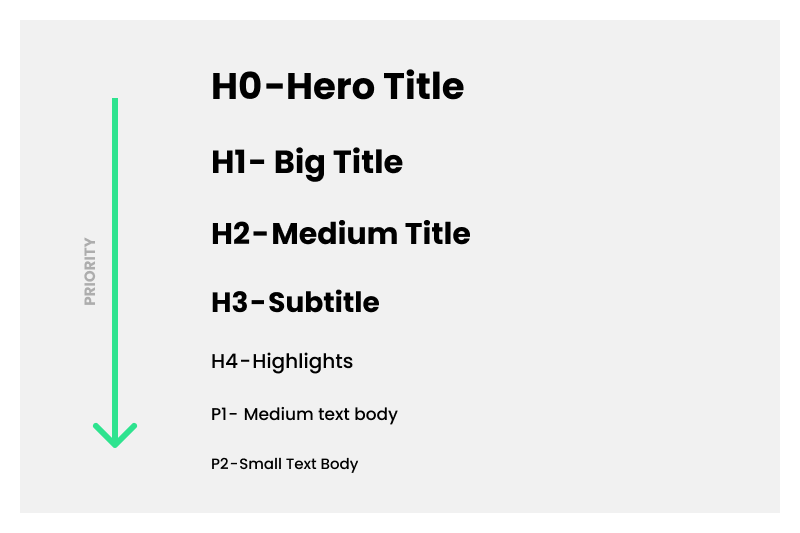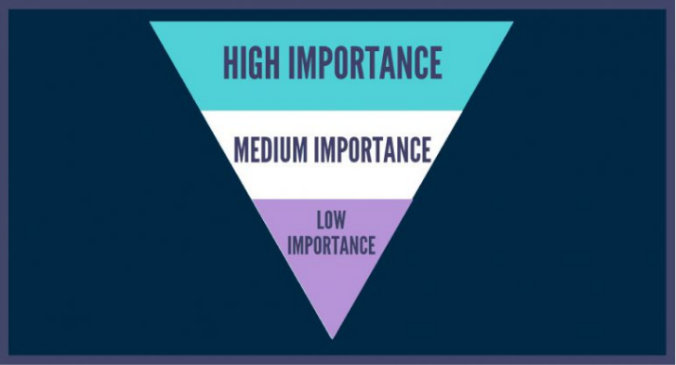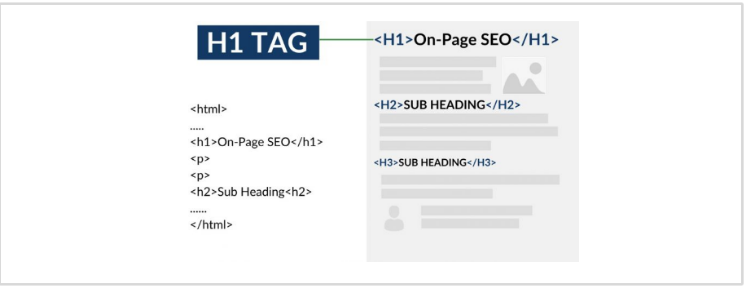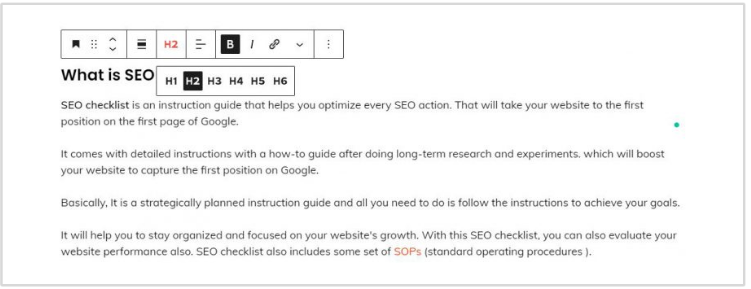
Book a Free Consultation Now
Would you like to know more about this topic?
Contact us on WhatsApp and get a free consultation from our experts
Contact on WhatsApp NowHow do you use the subtitle in content writing? Subtitles are used by dividing your content into clear, logical sections where each subtitle introduces one main idea and directly reflects the paragraph below it. The process starts after writing the main title, then placing subtitles in a structured hierarchy (H2 for main sections and H3 for supporting points), ensuring they are short, descriptive, and positioned every 200–300 words to guide readers smoothly through the content. At Nofal SEO, we apply this exact method strategically—combining proper subtitle structure with search intent and keyword optimisation—so your content is not only easy to read but also built to rank, engage, and convert.
What is the heading and subheadings?
Headings and subheadings are references to your content. Refers to a section summary written under a heading or subheading. It helps people to understand this section easily and quickly. If you are writing a blog post then the title of the blog post is the title of that post tagged with the H1 tag and then all the headings you use will be your subtitle like H2, H3, H4, H5, H6. Depending on their use, keep track of letter heights The hierarchy also defaults from the H1 tag to the H6 tag.
How do you use the subtitle effectively when structuring content? Subtitles are used to organise ideas, guide readers through different sections, and highlight the most important points within the content. By applying subtitles in a clear hierarchy, writers can improve readability, enhance user experience, and help search engines better understand the structure and purpose of the page.
What is the hierarchical content format?
One of the most important elements of content marketing is the content hierarchy. It involves strategically placing the order of content on every page and post. Put the most important information at the top of the page and the least important information at the bottom.
Headings and subheadings also help achieve the goals of formatting the content hierarchy. Using headings and subheadings in the appropriate place will do the job for you. So, you are probably wondering how do you use headings and how do you use subtitles?

The importance of using headings and sub-headings for the content hierarchy
Headings and subheadings help readers understand what your blog articles are about. Through these headings, readers will easily find the section they really want to read. If you don’t use headings, it will be very difficult to find which section readers are really looking for. As a result, you will lose traffic day by day because everyone wants to read what they are interested in without having to read a long stack of articles.
Remember, the main focus of using headings is to make your text easier to read and understand for your readers.Always keep in mind that the first line of the paragraph should contain the keywords. When writing your content to add a heading, make sure that the first sentence of your paragraph contains information relevant to that paragraph. Second, use a subheading to divide the content into different parts that can help make the information easier for your readers to understand. But How do you use the subtitle and what is its importance?
The effect of title and subheadings on search engine optimization
There is a misconception that headings and sub-headings do not affect SEO. But this is far from the truth. Although there is no direct correlation between the titles and SEO subheadings on the page, the lack of titles and subheadings in your content can indirectly harm the SEO of the page, becauseUse headings and subheadings in your content to make the content high quality, easy to digest and easy to read.
Which provides a nice experience for readers of your content. If the reader of your website cannot get what he is looking for easily, he will probably leave your website and look for any other website to get the answer to the same question. This will affect your site’s SEO. This also decreases the user interaction time and the bounce rate will start to increase. After a certain period of time, the search engine will lower your ranking because it concludes that your website is not able to give the searchers what they are looking for.
How do you use the subtitle correctly in your content?
How do you use the subtitle correctly to improve content clarity and structure? Subtitles should be used to break long text into logical sections that guide readers through the main ideas. Each subtitle must clearly reflect the paragraph below it and help readers quickly understand what the section is about without reading the entire content.
Using content subheadings properly also improves readability and content flow. Well-structured subheadings make articles easier to scan, keep readers engaged, and support better organisation for both users and search engines.
Here are some tips that you can follow to teach you how to use the subtitle correctly in your content, including:
1. Always start with H1
The most important heading is H1. Your article or page should always contain one h1 title which is the title of your page or article. If you’re using WordPress”, the title of the page or post will be automatically set as an H1 tag. Inspect the h1 tag on Pages, like this On a category page the category name will be the H1 or on a product page the product name will be the h1 title. Don’t use more than one H1 title One in one piece of content The H1 is the highest level and should describe the entire content of the content and not a branch of the content.

2. Don’t skip headings
After the H1 heading should come the H2 heading. Don’t skip the heading hierarchy. After the H1 tag, don’t use the H3 title tag. This breaks the standard organizational structure. If you skip a heading, readers may assume they skipped any section of the post by mistake.
3. Divide long content into multiple sections through title and subtitle
Nobody likes to read long content in one paragraph. Try to divide the content into different sections. This makes it easy to read and use. Here you can use headings and subheadings to divide long content into different sections. It will attract your readers as well as your content design will be eye catching.
4. The subtitle should relate to the content
A heading is a brief summary of the paragraph you plan to write under the heading or subheading. Therefore, the heading must be closely related to the content of that paragraph.
5. Never use a subtitle for styling
Each title has its own style. H1 has the largest font size on a web page. Similarly, H2, H3, H4, H5, and H6 each of those fonts has a different size than the other. Don’t change the style of the heading and subheadings. You may consider changing the font size and font color depending on your design needs. But by doing this, you will likely end up violating one of the above rules.
If needed, you can change the font style according to your blog’s font style or you can use custom CSS style to achieve it.
6. Use a keyphrase in the title and subheadings
Use your target keyword or key phrase in your title or subheadings. This helps search engines understand what your content is about. This will increase your on-page SEO for that article or your website page. Example: If you are talking about the use of titles as we are now, it is possible to use a subtitle, such as How do you use the subtitle correctly in your content? However, keep in mind that it is not appropriate to enter any additional keywords or phrases that are not related to the content you are writing. Keywords, both in titles and subheadings, must also be formulated in a smooth and natural way that is easy to read and understand.
Quick guide to title and subtitle
How do you use the subtitle effectively when structuring your content? A clear title introduces the main topic, while subtitles help organise information into logical sections. Titles should define the overall purpose of the content, and subtitles should guide readers through key points in a smooth and readable flow.
Using content titles and subheadings correctly improves readability, user experience, and on-page SEO. Well-written titles attract clicks, while descriptive subtitles help readers scan content quickly and understand its structure without confusion.
Below we will give you a brief guide on how to use subtitles in your content:
- Do not abbreviate headings and subheadings in page names.
- Do not go beyond the header level for formatting reasons.
- You should never use the heading or subtitle format to style any other type of content.
- Don’t make the title or subtitle bold or italic.
- Do not use all capital letters in the title and subtitle.
How to add headings and subheadings in the WordPress editor?
To use your title and subtitle in the WordPress editor, simply login to your account and create a new post:
“WordPress Dashboard > Posts > Add New.” Next, you will be redirected to the default WordPress editor.
Here in the top section of each block, you will see an option called Heading.
- Click on it.
- Then choose the title and subtitle you want.
Through this, you will be able to mark your existing text as H1, H2, H3, etc. on the title tag very easily. Using headings and subheadings is the most important thing to coordinating your content and design hierarchy. Use headings correctly to divide your content into sections that help readers understand the content easily and quickly. This will increase user engagement time on your website and as a result, search engine will adopt your website as a valuable one. So know very well how to use the subtitle in a way that serves your content.

Subtitles: How They Are Used in Content and Media
Subtitles are used in two main contexts: written content and media. In content writing, subtitles refer to subheadings that organise information, guide readers through the text, and improve readability and SEO. They help break long content into clear sections and make it easier for readers to scan and understand key ideas.
In media, subtitles refer to on-screen text that represents spoken dialogue, sounds, or narration in videos and films. They improve accessibility, support viewers who watch without sound, and help non-native speakers understand the content.
Although the meaning changes depending on the context, subtitles in both content and media serve the same purpose: enhancing clarity, comprehension, and user experience.
How are subtitles used?
How do you use the subtitle to improve viewer understanding and accessibility? Subtitles are used to display spoken dialogue and essential audio information as on-screen text, helping viewers follow the content clearly regardless of sound conditions or language barriers. They support inclusivity, enhance comprehension, and improve overall content engagement.
From an SEO and accessibility perspective, video subtitles increase watch time, reduce bounce rates, and make content easier to consume across different platforms. They are essential for audiences watching videos silently on social media or in public spaces.
Professional usage includes:
-
Helping viewers understand content in noisy or silent environments
-
Supporting non-native language speakers
-
Providing accessibility for hearing-impaired audiences
-
Increasing watch time and audience retention
How to use subtitles for a movie?
How do you use the subtitle in a movie to maintain storytelling quality? Movie subtitles should accurately reflect dialogue while preserving tone, emotion, and cultural context. They must be concise, well-timed, and easy to read without distracting viewers from the visuals.
Using movie subtitles correctly requires localisation rather than literal translation. This ensures cultural references, idioms, and emotions are understood naturally by the target audience while maintaining the original meaning.
Correct steps:
-
Transcribe the original dialogue accurately
-
Translate the dialogue if needed (localisation, not literal translation)
-
Split text into short, readable lines
-
Synchronise subtitles precisely with speech
-
Test subtitles during playback for timing and clarity
How to do subtitling?
How do you use the subtitle during the subtitling process? Subtitling involves converting spoken language into written text that is synchronised with the video timeline. This process combines linguistic accuracy with technical precision to ensure readability and timing consistency.
Professional subtitling workflow includes transcription, translation (if required), segmentation, timing, formatting, and quality review. Each step ensures the subtitles are clear, readable, and aligned with industry standards.
Subtitling workflow:
-
Audio transcription
-
Text translation (if required)
-
Segmenting dialogue into subtitle units
-
Timing subtitles to match audio
-
Formatting for readability (font, length, position)
-
Quality review and corrections
How to subtitle properly?
How do you use the subtitle properly without overwhelming the viewer? Proper subtitling focuses on clarity and simplicity. Each subtitle should stay on screen long enough to read, contain no more than two lines, and use straightforward language that matches the speaker’s intent.
Following subtitle best practices improves readability and viewer experience. This includes correct punctuation, consistent formatting, accurate timing, and maintaining the original message without unnecessary additions or omissions.
Best practices:
-
Use a maximum of two lines per subtitle
-
Keep each subtitle on screen long enough to read
-
Use simple, clear language
-
Follow grammar and punctuation rules
-
Maintain the original tone and meaning
Subtitle for YouTube
How do you use the subtitle on YouTube to improve video performance and accessibility? YouTube subtitles are used to display spoken content as on-screen text, helping viewers understand videos even when sound is off. They also make videos accessible to hearing-impaired users and improve overall user experience across different devices.
From a growth and SEO perspective, YouTube subtitles help search engines understand video content, which can increase visibility in search results. Subtitles also boost watch time, engagement, and audience retention—especially on mobile and social platforms.
How to add subtitles on YouTube:
-
Open YouTube Studio
-
Select the video
-
Click on “Subtitles”
-
Upload a subtitle file or type subtitles manually
-
Review timing and accuracy
-
Publish the subtitles
Do you need a consultation about this topic?
Contact on WhatsApp
